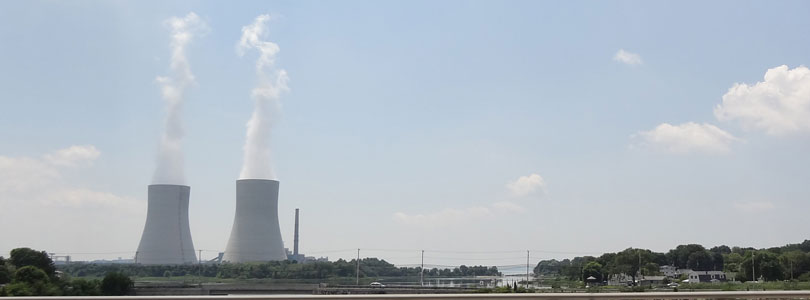Benjamin C. Riggs: Fighting Climate Change in Burrillville
At their recent public meeting, Burrillville residents and many others firmly opposed the proposed natural gas power plant. There were two stated grounds for opposition to the project. The first had to do with the residents’ justifiable concerns about the impact on their community. Since the power to be generated would benefit everyone in New England, but the effects on quality of life, real estate values, and the rural nature of the area would be imposed mainly on the residents of Burrillville, clearly they are entitled to full compensation for the contribution they would be facilitating for the general good.
But then we come to the second area of concern raised by groups such as the Conservation Law Foundation: climate change.
To address climate change, we need to acknowledge where global pollution, and any contribution it may be making to climate change, is coming from. Back in 2011, the U.S. Energy Department involved itself in a project to summarize the carbon dioxide output of the worlds largest polluters. China took the lead, with 10.0 billion tons and growing. The U.S. was second, with 5.9 billion and shrinking. India came in third, with 2.5 and increasing rapidly. Looking at the Gross Domestic Product (GDP) of those countries that same year, the U.S. led with $14.1 trillion, with China in third place (behind Japan) with $4.9 trillion, and India trailed in 11th place with $1.2 trillion. When we combine the two, carbon output and GDP, we see that both India and China produce 5 to 6 times the carbon dioxide output as the U.S. (and the European Union) on a per GDP basis.
In simplified terms, that means they produce over 5 times as much pollution as we do when manufacturing products for our use. Simply enough, if you make it more difficult and more expensive to live and manufacture in the U.S., even more manufacturing jobs will emigrate to places like China and India, and the increased pollution with it. But then how about those sources other than carbon? According to the U.S. Department of Agriculture, farmers are using 88% more fertilizers and pesticides than they need to, all of which is harming the ability of our oceans to produce oxygen and trap carbon the way the forests and grasslands do. And speaking of forests, the impact of massive deforestation in places like Malaysia, Indonesia, Africa, and Brazil on our climate is almost as great, with the West’s demand for palm oil and teak wood being one of the main drivers behind it.
So how will rejecting this natural gas plant help reduce all this global pollution? The cleanest energy of all is hydroelectric, but the residents of Maine don’t want transmission lines from Hydro Quebec running through their back yard. Renewables like wind and solar are not only expensive, but they only work when the wind is blowing and the sun is shining. So we would still need to maintain the full capacity of conventional power plants anyway, and conventional plants have been proven to operate less efficiently and with more carbon emissions when they have to ramp up and down to accommodate intermittent wind power. Even if the wind blew all the time, it would take over 1,000 wind turbines to put out as much power. Is there room for those in Burrillville?
As it happens, it is natural gas that has been displacing coal in the U.S., steadily contributing to a cleaner environment. With two major power plants in New England (Brayton Point and Pilgrim Nuclear) shutting down, something more viable than an empty gesture against “climate change” has to take their place. And in the process, it is only fair to ensure that the hosts of that facility have their interests protected as much as possible.
Mr. Riggs is a retired Navy Captain whose second career included serving as CEO of several manufacturing companies. He has also taught and lectured on the global environment at a local university program.


